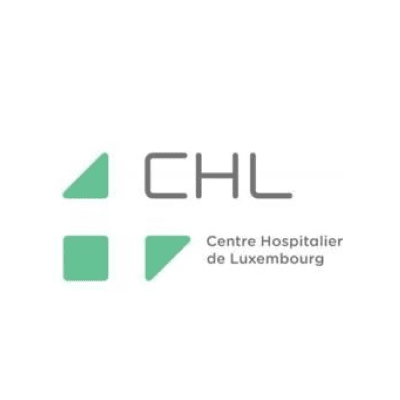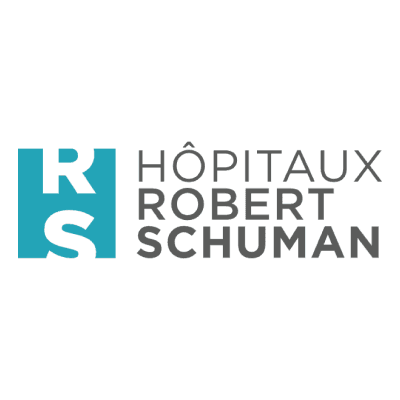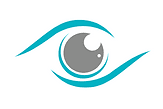
How to visit an ophthalmologist in Luxembourg in 2025
If you are starting to see blurry, either you have had more beers than you should or you need to see an ophthalmologist. If it's the second case, here we'll tell you everything you need to know, we'll look at where to find one, how to sign up for social security and general information on how the health care system works in Luxembourg.
Consultations with ophthalmologists in Luxembourg follow the same procedure as with any other specialist with reimbursements ranging from 80% to 100%.
Access to ophthalmology care in Luxembourg
In Luxembourg, both employees and the self-employed must pay social security contributions, which entitles them to health benefits for themselves and their dependents. The system's coverage includes most treatments provided by general practitioners or specialists, as well as all laboratory tests, prescriptions and hospitalizations. Ophthalmological care is no exception and is fully covered by social security.
Healthcare system in Luxembourg

Health insurance for ophthalmology services
Unlike many European countries, Luxembourg does not have a public and a private healthcare system, most medical professionals work privately but have contracts with the Caisse Nationale de Santé (CNS) to provide state-funded services. However, some physicians and specialists only work privately.
Luxembourg residents and their children benefit from state health insurance which covers ophthalmology consultations at 80% as well as consultations with other specialists. Those who wish to go further and obtain full coverage can subscribe to private health insurance to cover the excess.
State health insurance is managed by different entities depending on the type of employer and private insurance is offered by multiple insurance companies. Below we are going to see which are the different state entities that manage state health insurance and some of the main insurance companies that provide private health insurance.
State health insurance is managed by different entities depending on the type of employer. Below, we will look at the various state entities managing health insurance.
Health insurance in Luxembourg: CNS and access to healthcare
The Caisse Nationale de Santé, is in charge of health insurance in the private sector, if you want to know in detail how it works, take a look at our related article.
Private health insurance is offered by multiple insurance companies, below we will look at some of the main private health insurance providers. While public insurance includes contributions to the CCSS, private insurance, while often covering a wider range of procedures covered by the CCSS, is often more expensive and involves direct payments to the insurance plan.
DKV Luxembourg was originally an independent insurance company that was part of the international DKV Group. The latter belonged to the insurance giant ERGO, which, in turn, was part of the Munich Re Group, one of the world's largest reinsurers and Germany's second-largest insurance group. Since 2015, however, DKV Luxembourg has been acquired by LaLux becoming a subsidiary company, although it continues to operate under the DKV Luxembourg brand.
In Luxembourg, both employees and the self-employed are covered by the social security system. This system is based on a system of reimbursements ranging from 80% to 100%. The system's coverage includes most treatments dispensed by general practitioners or specialists, as well as all laboratory tests, prescriptions and hospitalizations. Below we will briefly look at how the affiliation works in various circumstances:
Employed Workers
Self-Employed Individuals
Family Members
For more details on the different modalities of affiliation to the social security system and general information on the health care system in Luxembourg we recommend you take a look at a special summary prepared by the CNS
How to get reimbursed for ophthalmology care in Luxembourg?
The Luxembourg healthcare system covers medical expenses with a percentage of coverage generally ranging from 80% to 100%. However, there are some exceptions such as medicines that have three reimbursement percentages:
- 40% for medications of moderate interest and intended for the treatment of symptoms of benign pathologies,
- 100% for medications with a specific therapeutic indication and
- 80% for all other medications.
Please note that you must pay the full price for drugs purchased without a prescription.
The health care system is based on reimbursement, which means that members must pay medical expenses in advance and then submit a claim for reimbursement to the CNS. For certain types of care, however, such as hospitalization expenses, laboratory expenses or drugs, the CNS pays the portion covered by the state directly to the provider and the insured only has to pay the excess.
For expenses requiring reimbursement, two different procedures exist:
- First request or change of bank account: a specific procedure must be followed through the MyGuichet platform. This procedure involves indicating the 13-digit national identification number and a RIB number for reimbursements.
- General procedure after the first request: the originals of the invoices for fees or other advanced medical expenses, duly paid, must be submitted to the CNS and must bear the 13-digit registration number of the person who received the treatment.
if you send your letter to the CNS from Luxembourg, you do not need to affix any postage.
It takes about two weeks for the reimbursement to be transferred to your bank account, along with the notification by mail, although the time frame can vary quite a bit, from a few days to several weeks, depending on the workload and available resources of the CNS.
Read article
Finding a good ophthalmologist in Luxembourg
Let's now take a look at how to find a good ophthalmologist in Luxembourg by reviewing the main criteria to take into account:
Not all the medical specialists are covered by your insurance, ask before you go.
You can also go to a specialist outside Luxembourg. There are many professionals who can help you. For simple consultations with a doctor in a foreign center, clinic or hospital, you do not need a prior agreement, reimbursement is made according to Luxembourgish rates and fees. However, approval is required if the doctor uses a highly specialized medical device for the consultation, as specified in the restrictive list, or if the doctor's procedure requires the use of hospital infrastructure.
Where to look for an ophthalmologist in Luxembourg?
Searching for health professionals is not always easy, so we are going to give you a hand with this. If you don't know where to start, keep in mind that there are basically two options: either you search online or you search through contacts and acquaintances. Let's look at these two options in detail:
Online
There are multiple online platforms where you can search for ophthalmologists in Luxembourg, here are some of the most important ones.




Offline
It is also possible to perform searches the old-fashioned way, without internet, some of the main options are:


Popular clinics in Luxembourg
In Luxembourg there are many clinics and hospitals with ophthalmology departments, here are some of the most important ones:




Cost of visit to ophthalmologist in Luxembourg in 2025
Although a good part of the cost of a visit to an ophthalmologist in Luxembourg is reimbursed, usually 80%, it is useful to know the cost of the most common procedures to have an idea of the non-reimbursed part that you will finally have to pay.
Let's then see in the following table the cost of visiting an ophthalmologist in Luxembourg in 2025 and some of the most common procedures. A much more exhaustive list can be found directly on the CNS website.
| Consultation or procedure | Cost | Reimbursement (80%) | Total not reimbursed cost |
| Consultation with an ophthalmology specialist | 63.6 euros | 50.88 | 12.72 |
| Fundus examination | 86.2 euros | 68.96 | 17.24 |
| Binocular vision examination | 25.6 euros | 20.48 | 5.12 |
| Dark adaptation curve | 46.0 euros | 36.8 | 9.2 |
| Identification and ophthalmoscopic marking of retinal tears or intraocular foreign bodies | 92 euros | 73.6 | 18.4 |
| Measurement of blood-barrier resistance using contrast tests | 33.3 euros | 26.64 | 6.66 |
| Fluorescein angiography | 49.2 euros | 39.36 | 9.84 |
| Removal of multiple foreign bodies from the conjunctiva or cornea | 56.9 euros | 45.52 | 11.38 |
| Removal of conjunctival flanges or small neoformations; peritomy | 73.3 euros | 58.64 | 14.66 |
| Suture of a corneal or scleral wound, with or without iridectomy or conjunctival covering | 112.3 euros | 89.84 | 22.46 |
| Corneal or scleral grafting | 52.2 euros | 41.76 | 10.44 |
| Extraction of intraocular foreign bodies | 103.1 euros | 82.48 | 20.62 |
| Treatment of retinal detachment and/or lesions by diathermy and cryopexy | 33.3 euros | 26.64 | 6.66 |
| Treatment of retinal detachment by indentation limited to one quadrant | 33.3 euros | 26.64 | 6.66 |
| Treatment of retinal detachment by indentation involving several quadrants | 13.9 euros | 11.12 | 2.78 |
| Removal of intraorbital tumors, including access operations | 22.9 euros | 18.32 | 4.58 |
| Instrumental determination and tracing of visual field | 38.5 euros | 30.8 | 7.7 |
Source: CNS
Health care in Luxembourg is excellent and offers a higher level of coverage than in other European countries. Although the country is small, it has numerous ophthalmology centers in the main hospitals of the country as well as multiple independent clinics. Accessing a qualified specialist is not difficult, there is a wide availability of professionals and the costs are relatively low after the reimbursements offered by Social Security. In addition, those who have private insurance will certainly not have to pay anything.
Frequently Asked Questions (FAQ)
Is the visit to an ophthalmologist covered by health insurance?
Is there emergency eye care available in Luxembourg?
Are there any online platforms to book ophthalmology appointments in Luxembourg?
Source: cns.public.lu, www.ammd.lu, www.lalux.lu, www.dkv.lu, dkv.es, paperjam.lu, www.ophta.lu, www.hopitauxschuman.lu, www.centremonterey.lu, www.chl.lu
We took photos from these sources: CHL, Hopitaux Robert Schuman, Centre Ophtalmologique Monterey, Centre Ophtalmologique Place de l'Étoile